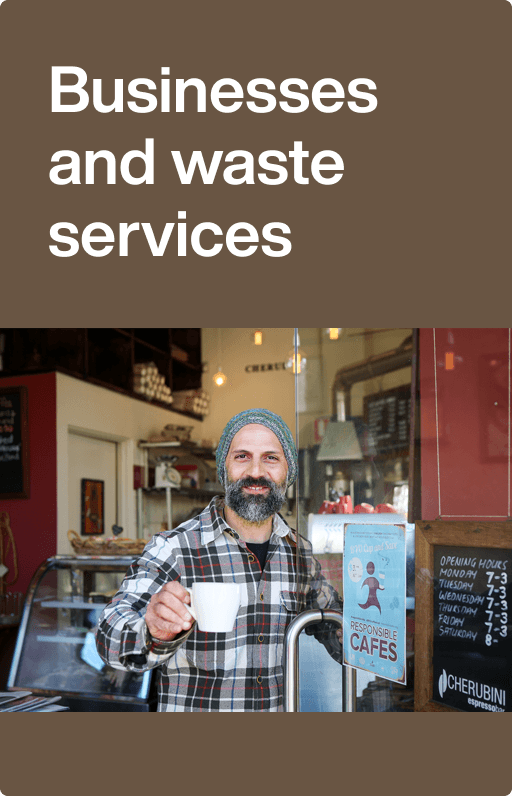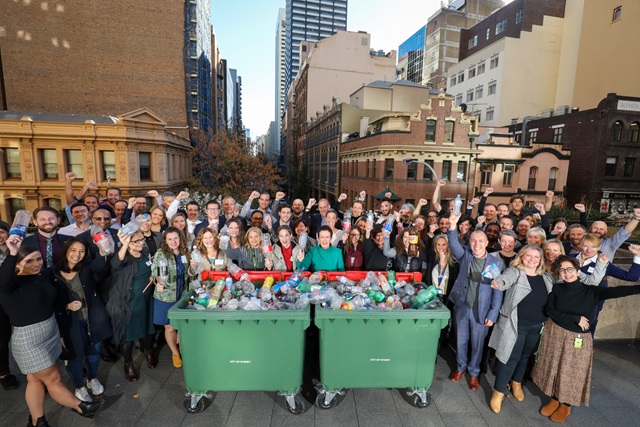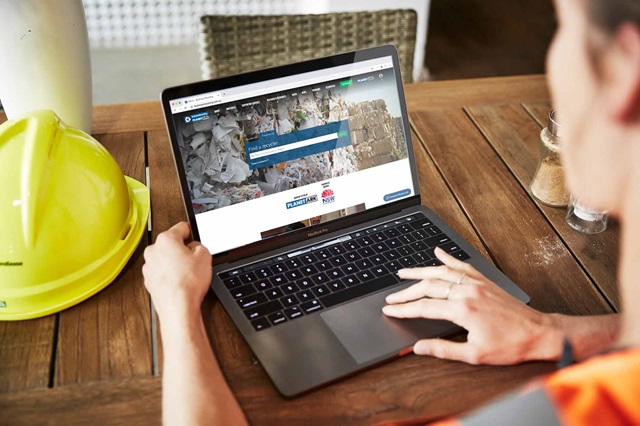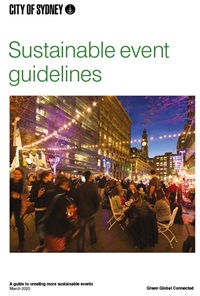Businesses and waste services
Here’s everything businesses in the local area need to know about recycling services and reducing waste.

Your rates and waste
All businesses must arrange their own waste collections. Business council rates don’t cover waste and recycling.
You must show your waste collection contract if one of our employees asks to see it. We strongly recommend you hire a contractor to collect recyclables to reduce your business waste going to landfill.
Compostable containers, cups and straws can be separately collected and composted with food at a suitably licensed facility, and recyclable rigid plastics containers can be separated for recycling. Otherwise they need to be sent to landfill.
Our local approvals policy for managing waste in public places outlines your responsibilities for managing business waste.
Your bins
All bins must be clearly labelled with your business name, phone number and address. Order free bin labels by calling us. Your waste contractor’s name, address and phone number must be displayed on all bins.
Your collection
Businesses must always store their bins inside their premises.
If possible, arrange for your waste collection contractor to collect your bins from your storage area when they’re ready for collection and return them immediately after.
If you need to place your bins in a public place for collection, keep them next to your business premises and remove them immediately after. Bins must be in a spot where they won’t disturb traffic flow or parking, or block people walking or riding bikes. They mustn’t block doors or emergency exits.
All waste must be placed inside your bins and lids must be fully closed. Any waste not in a bin is considered illegal dumping.
Download our local approvals policy to check your collection zone and learn more about your responsibilities.

Take the pledge
We all have a part to play in reducing, reusing and recycling waste
Around 85% of Sydney's waste is generated from commercial and industrial sectors, yet only 50% of this waste is recycled. While recycling is important, we must reduce and avoid waste altogether.
Eliminate single-use items
From Wednesday 1 June 2022, NSW Government legislation banned the supply of lightweight plastic bags. From Tuesday 1 November 2022, more single-use plastic items are banned such as single-use plastic straws, stirrers, cutlery, bowls, plates and more.
Businesses will no longer be able to supply these items in NSW. Find extra information, resources and support for businesses.
Just 9% of plastics ever made have been recycled. The vast majority of disposable, single-use items – straws, cutlery, plastic shopping bags, coffee cups, takeaway packaging, individual wrappers – end up in landfill or contaminating recycling streams
The recycling options available to customers in public spaces, their work and their home will all be different.
No matter how ‘green’ an alternative may seem, if your customer can’t recycle it in the right bin, it ends up in landfill anyway.
If you make the switch to compostable single-use items you need to introduce an organics bin and send the food and compostable packaging to a suitably licensed facility, otherwise these items go to general waste and landfill. Learn about plastic, biodegradable and compostable materials.
Read below for great tips, suppliers and recycling options for your business. You can also use our eliminating single-use toolkit.Avoid and reduce these items
Events
Suppliers and services
These lists are not exhaustive. There may be other suppliers available. We don’t recommend any particular supplier.

Recycling
Furniture resources
Using recycled furniture to fit out your office often allows you to buy higher quality items at a lower price, saving valuable resources.
Contact re-use centres such as The Bower or Reverse Garbage to donate your old furniture and find low-cost new pieces.
Organisations and businesses with larger amounts of furniture to donate, for example from an office relocation or hotel refurbishment, can contact Re-Love. Re-Love helps people in crisis set up and furnish homes from scratch.
We have a range of programs to help with greening businesses

Networks & partners
Better Buildings Partnership
Environmental support & funding
Sustainable Destination Partnership
Environmental support & funding
CitySwitch





